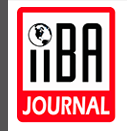Abstract
This paper examines the successful business strategy employed by Southwest Airlines with special respect to the recent theories of Paul Lawrence. Long-time professor of organizational behavior at Harvard Business School, Lawrence posited that Renewed Darwinian theory reflected four basic human drives: acquisition, defense, comprehension, and bonding. Given Michael Porter’s assessment of the distinctions between cost leadership and differentiation, my analysis reveals that Southwest succeeded in maintaining its competitive market niche for the air-travel industry by engaging in a strongly economistic, cost leadership strategy that primarily incorporated and prioritized aspects of the drives to acquire and defend. In doing so it displayed greater vision and operational effectiveness than its competitors (such as Continental Lite, for example).
Keywords
renewed Darwinian theory, airline management strategy, cost leadership
Chinese Abstract
以保尔·劳伦斯的新达尔文理论检视美国西南航空成本领先战略的成功案例
本文以最近的保尔.劳伦斯的理论研究美国西南航空所采用的成功的商务策略。作为哈佛大学企业行为的资深教授,劳伦斯提出新达尔文理论反映了人类四大基本驱动力:取得、防守、理解、和结合。基于迈克尔·波特对于成本领先战略和差异化战略的解读,本文揭示了西南航空公司通过强势采取成本领先战略,成功地保持了其在航空旅游业的竞争地位,该战略主要采纳并优先考虑了“取得”和“防守”这两个驱动力,与竞争对手(比如大陆轻运(Continental Lite))相比,此举显示出更高的视野并取得更高的运营效率。
关键词:新达尔文理论,航空业战略管理,成本领先战略
DOI
10.5038/2640-6489.2.2.1024
Recommended Citation
Chishty-Mujahid, N. (2017). Southwest Airlines’ successful economistic, cost-leadership strategy examined in light of Paul Lawrence’s renewed Darwinian theory: An analysis. International Interdisciplinary Business-Economics Advancement Journal, 2(2), 115-123. https://www.doi.org/10.5038/2640-6489.2.2.1024
Creative Commons License

This work is licensed under a Creative Commons Attribution-Noncommercial 4.0 License


